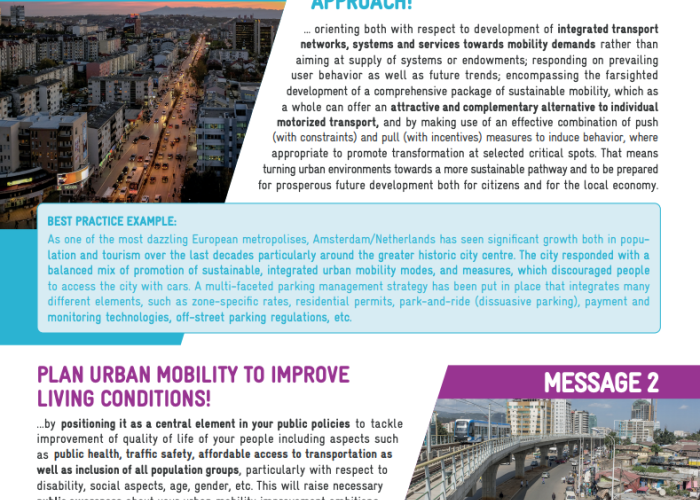MobiliseYourCity 12 Messages for our Beneficiary Partners

Key Messages toward Sustainable Urban Mobility Planning
- SUMP
- NUMP
- Others
Reports & Case Studies
Walker Oliver
Project Manager, Sustainable Transport
This report illustrates how a city can assess the different charging options and requirements to deploy different electric bus technologies and how they can select a solution appropriate to their circumstances, drawing on analyses’ conducted in Jakarta by the C40 Cities Finance Facility.
Many cities are interested in transitioning to a fully zero-emission bus fleet to combat local air pollution, reduce GHG emissions and to find long term financial savings. Jakarta is one such city who wants to improve the lives of its citizens by only procuring zero-emission buses after 2025 in line with C40’s Green and Health Streets Declaration but has struggled to navigate the wide variety of new technologies on offer and their respective charging requirements.
This report illustrates how a city can assess the different charging options and requirements to deploy different electric bus technologies and how they can select a solution appropriate to their circumstances, drawing on analyses’ conducted in Jakarta by the C40 Cities Finance Facility.
The report’s four key insights are that:
You can find this report and further Zero Emission Bus resources from the C40 Cities Finance Facility (CFF) here.